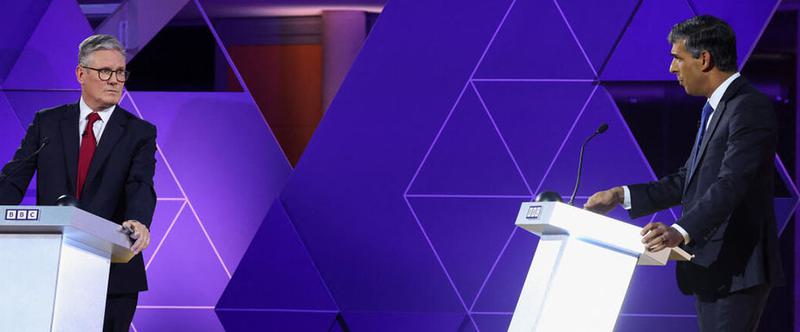The UK election, set to be held Thursday, brings to the fore the possibility of a potential change in government policies that can impact various aspects of the economy. However, everything hinges on the poll outcome.
According to S&P Global Market Intelligence, the impacts the election could pose include the UK's trade agreements, willingness to use import duties, industrial support, investment in infrastructure, and support for unionisation.
The Conservative Party and the Labour Party have largely similar strategies in these aspects, including trade deals and investment support, the financial information and analytics firm said.
The smaller parties may become relevant in a coalition government, with differing positions on EU relations, it asserted. Trade relations with the US will be partly a function of the November presidential and congressional elections.
A transactional approach to avoiding tariffs may be needed in industrial goods given the US accounted for 20.9 per cent of UK exports of cars and trucks, 16.4 per cent of aerospace parts and 23.8 per cent of construction and goods handling machines in the past 12 months.
The Conservative Party, which has been in power in the UK for around 15 years, faces a mounting task while heading into the elections under Prime Minister Rishi Sunak's leadership, with most polls predicting the return of a Labour government.
A record number of candidates - more than 4,000 - are campaigning for the July 4 general election. Economic stagnation, a housing crisis, the cost of living, immigration and foreign policy concerns are among the major issues in these elections.
Trade talks
India, a key partner of the UK, is actively in talks for a trade deal.Union Minister Piyush Goyal has said recently that India is actively working on the process of free Trade Agreements (FTAs) with many countries and expressed confidence of fast progress with the UK, irrespective of the result of the British elections.
The 13th round of talks for the UK-India Free Trade Agreement took place from the September 18 to December 15, 2023. Prime Minister Narendra Modi and his British counterpart Rishi Sunak had last month expressed satisfaction with the progress made.





